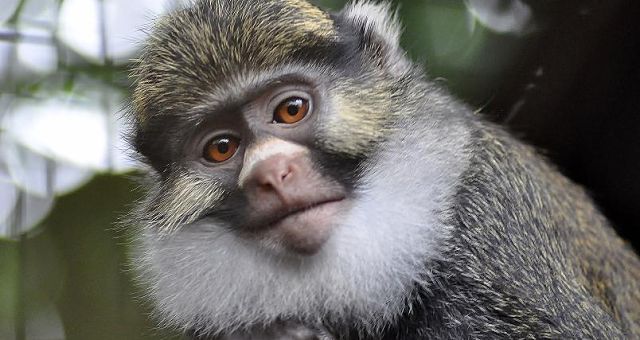The Global Environmental Facility Small Grant Programme (GEF-SGP) has urged government at all levels to intensify advocacy against unsustainable exploitation of endangered or threatened species.

GEF-SGP’s National Coordinator, Mrs Ibironke Olubamise, who gave the advice in an interview the News Agency of Nigeria (NAN) in Abuja on Friday, May 17, 2019 also called on stakeholders in the environment sector to join in the advocacy to preserve endangered species.
Olubamise was speaking on the commemoration of the 2019 World Endangered Species Day which is held on May 17 annually to create awareness on the need to protect endangered species from going into extinction.
“The primary reason for species extinction is human activities in the form of land conversion for agriculture, for infrastructural, urban and other developments.
“Impoundment and withdrawal of water also deny aquatic species of their habitats and threaten their survival.
“Very serious, particularly in some situations is the intentional or inadvertent introduction of invasive exotic species and the intentional persecution and unsustainable exploitation of species to meet human needs and wants,’’ she said.
According to her, increasing human population also contributes as more natural lands, species habitats have to be cleared to make room for more housing and other human needs.
Olubamise said that hunting and killing of animals for food, ivory and other animal parts, some snakes for their venom and other species for their use in an unsustainable manner were all the reasons for species extinction.
“The solution, which the day is about is to organise concerted efforts to reduce or halt the rate of unsustainable exploitation of endangered or threatened species and the loss of their habitats.
“This can be achieved through creation of awareness of the unsustainable exploitation of species and their habitats.
“The awareness creation is expected to change the paradigm that natural resources and species are infinite, and that continuous unsustainable exploitation will only lead to more problems for the human race,’’ she said.
According to her, GEF-SGP has supported over 30 conservation projects to reduce pressure and stop unsustainable exploitation of species in Nigeria.
Olubamise said GEF-SGP supported the iconic project titled: “Conservation of the Endangered Sclater Guenon Monkey’’, implemented by the non-government organisation, Biodiversity Preservation Centre, in Akwa Ibom State.
According to her, this is endemic to the southern part of the country’s tropical forest.
She said that the effort led to increase population of the monkey and thus the delisting of the species from the International Union for Conversation of Nature (IUCN), the red data list of endangered species.
“The third Friday of May every year, which falls on May 17 this year, is the day to mark the World Endangered Species Day.
“While some species disappear due to natural selection, it is no longer news that biodiversity loss has continued at an alarming rate and the world needs to take drastic measures to reduce and or stop the trend.
“The National Wildlife Federation spearheaded the establishment of Endangered Species Day in 2006 by the United States Congress,’’ she said.
According to her, endangered or threatened species are the different species of plants and animals whose number in the wild has reduced to the level that they cannot continue to survive.
Olubamise said that some intense biodiversity conservation actions should be taken to ensure they do not go into extinction.
“According to United States Fish and Wildlife Services, ‘endangered’ means species are in danger of extinction throughout all or a significant portion of its range. ‘Threatened’ means species are likely to become endangered within the foreseeable future. The status of ‘endangered’ is decided by IUCN,’’ she said.
Olubamise said that IUCN revealed that currently more than 98,500 species were on the IUCN Red List, adding that more than 27,000 were threatened with extinction.
According to her, this includes 40 per cent of amphibians, 34 per cent of conifers, 33 per cent of reef building corals, 25 per cent of mammals and 14 per cent of birds.
“These endangered or threatened species of plants and animals are of importance to ecosystem wellbeing which is a prerequisite for human survival and development.
“They all have biological, ecological, historical, aesthetic, recreational, and scientific value that make live and living beautiful. They contribute to the balance of nature and the biological cycles.
“Ultimately, these species are a part of the complex web of life that supports us every day,’’ she said.
She enjoined relevant stakeholders to make efforts to promote habitat restoration and refuse bush meat which had been unsustainably killed for consumption.
According to her, the idea of reuse, reduce, recycle will also contribute to reducing habitat destruction through pollution.
By Deji Abdulwahab
